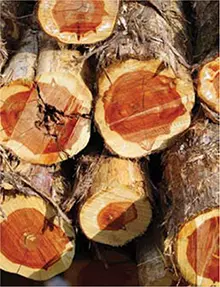
Origins of Cedar
Cedar essential oil, also known as cedarwood oil, is derived from the bark of the cedar tree. This coniferous evergreen thrives in the Western Himalayas and the Mediterranean regions. The oil is renowned for its distinctive woody and balsamic fragrance. Cedar wood’s natural moth-repellent quality makes it a popular choice for crafting clothing storage chests and closets.
Historical Significance and Lore
The use of cedar dates back to ancient civilizations. The Egyptians incorporated cedar oil in the embalming process and used it as a perfume, while the wood was utilized in crafting sarcophagi. In classical times, the Greeks and Romans burned cedar as incense. Cedar holds spiritual significance, being mentioned in sacred texts like the Bible and the Talmud. Native Americans revered cedar for enhancing spiritual communication.
Diverse Uses of Cedar Essential Oil
Healing Properties
Cedar essential oil is rich in sesquiterpenes, compounds that activate the limbic system, the brain’s mood center. This attribute makes cedar oil a valuable tool in aromatherapy to alleviate stress, promote sleep, and facilitate relaxation. Its antiseptic and anti-inflammatory qualities are effective in treating skin conditions and wounds. Applied to joints, it offers relief from arthritis pain.
Personal and Spiritual Growth
In the realm of personal and spiritual development, cedar essential oil resonates with the heart chakra, fostering self-acceptance and love. It helps dispel fear and instills a sense of safety and security. Beyond relaxation, cedar oil is believed to enhance focus and encourage the pursuit of long-held dreams and aspirations.
